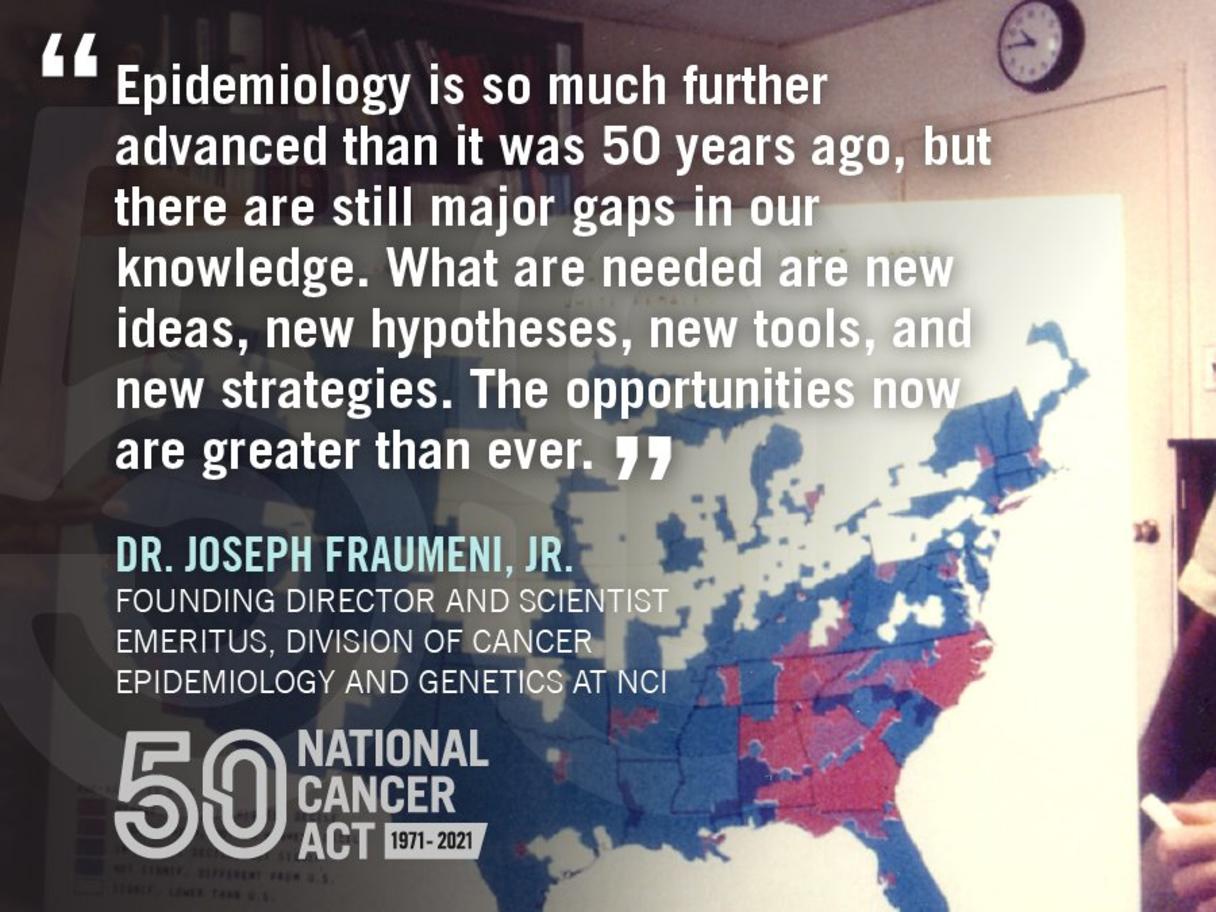Public Health Impact of DCEG Research
DCEG research findings have made a significant improvements to the nation's health. Several of these accomplishments were featured as part of the NCA50 commemoration--celebrating 50 years of the National Cancer Act.
Environmental Exposures
- Benzene-associated Hematoxicity and Carcinogenicity
- Occupational Exposures: 2,4,D; Arsenic; Acrylonitrile; Benzene; Chromium Compounds; Diesel Exhaust; Formaldehyde; Pesticides; Silica; Tetrachloroethylene; Trichloroethylene; Wood Dust
- Contaminants in Drinking Water: Arsenic; Disinfection Byproducts; Fluoride; Nitrate; Per- and Polyfluoroalkyl Substances
- Diesel Exhaust and Risk of Lung Cancer
- Ionizing Radiation: Medical Radiation from Therapeutic and Diagnostic Procedures; Radioactive Fallout or Environmental Contamination from Nuclear Weapons; Naturally-occurring Radiation; Ultraviolet Radiation; Electromagnetic Fields

DCEG's Commitment to Collaboration
Genetics and Heritable Factors
- Genetic Etiology of Cancer
- Genetic and Environmental Factors Influence APOBEC Mutagenesis in Tumors
- Genetic and Molecular Epidemiology
- Hereditary Cancer Predisposition Syndromes
Health Outcomes
Lifestyle and Medical Exposures
- Medical Radiation and Cancer, the Risk from CT Scans
- Diet, Cooking Methods, and Dietary Supplements
- Diethylstilbestrol (DES) Exposure in Pregnancy or in utero
- Infectious Agents: Human Immunodeficiency Virus, Helicobactor pylori, Human Papillomavirus
- Pharmaceuticals and Medical Devices
- Physical Activity
- Risk Assessment Tools and Methods
- Second Primary Cancers
- Tobacco Products
Citations
See a complete list of article citations on public health impacts.

